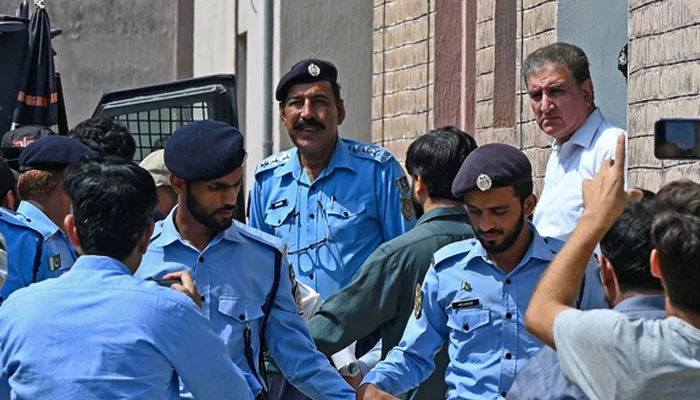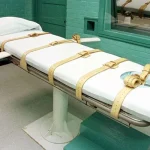ISLAMABAD: On March 27, 2022, Imran Khan waved the cipher at a public rally he staged at the Parade Ground. Shah Mehmood Qureshi then prevented the Ministry of Foreign Affairs from sharing it with the US chargé d’affaires, who requested a copy of it.
In their testimony recorded before the trial court, former additional secretary Faisal Niaz Tirmizi recalled how Washington responded to the politicization of a diplomatic cable, while former ambassador to the US Asad Majid declared the cipher episode a setback to Pak-US relations and the negative implications it carried for future diplomatic reporting culture.
Current Pakistani ambassador to the United Arab Emirates, Faisal, claimed that at the time, Angella Aggler, the US chargé d’affaires,
asked him via a WhatsApp message if she could deliver a document that the then-prime minister Imran Khan had paraded around, claiming that the US was meddling in Pakistan’s domestic affairs. Faisal dealt with America as an additional secretary in the MoFA at that time. His statement before the court said, “She further mentioned in her message that the above said message did not play well in DC.”
He then forwarded the US diplomat’s WhatsApp communication to Foreign Secretary Sohail Mahmood and Foreign Minister Shah Mehmood Qureshi. “The then-foreign minister called me right away to let me know that the cipher message could not be shared with the US CdA.” On March 27, 2023, this occurred—the day Imran displayed the cipher to the general public.
He was summoned to brief the cabinet three days later because the minister and secretary were traveling outside of Pakistan. Following that, Faisal was requested to give a demarche about US meddling in Pakistan’s domestic affairs to Richard Shelsire, the acting US chargé d’affaires. He duly accomplished this. Faisal’s responsibilities were restricted to receiving messages on WhatsApp from the US Embassy, forwarding them to the MoFA officials, and then making an appearance at the cabinet meeting when his superiors were not present.
Regarding Asad Majeed, he informed the trial court that he invited Donald Lu for a working lunch that lasted for an hour and a half.
Along with the political counselor and defense attaché, the deputy chief of the Pakistani mission was there. It was minuted, as both parties knew. “I conveyed the conversation to Islamabad,” Asad stated in his evidence, omitting the terms “threat” and “conspiracy.” “I refrained from using the terms conspiracy or threat. The leadership in Islamabad came to that political conclusion, he said.
He further noted that the communication was addressed to the foreign secretary, who disseminated it to all relevant parties in accordance with his authority. In their respective meetings, the MoFA and the National Security Council came to the same conclusion: there was no plot. “The cipher incident was a blow to the bilateral ties between Pakistan and the United States and had negative effects on the future.”







